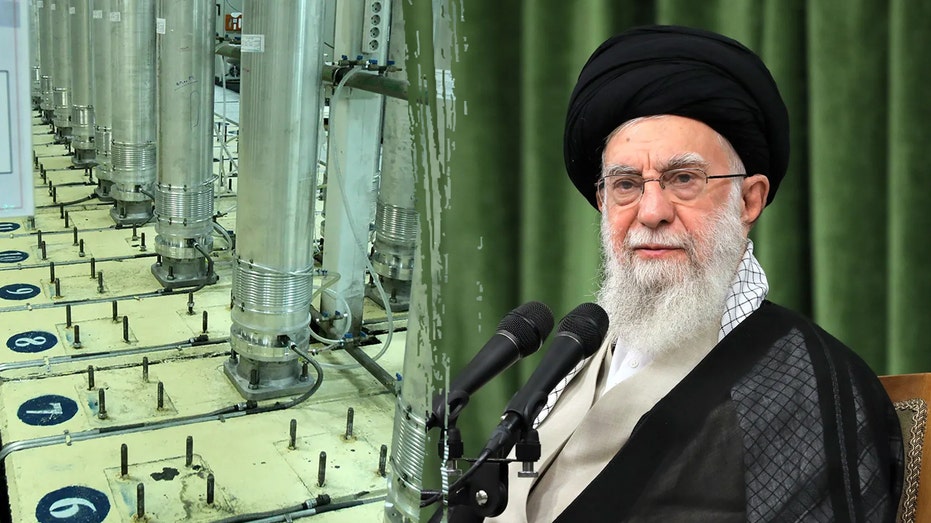Trump Admin Ends Waiver Allowing Iraq to Buy Iranian Electricity as Part of 'Maximum Pressure' Campaign

Sarah Johnson
March 10, 2025
Brief
The Trump administration ends Iraq’s waiver to buy Iranian electricity, escalating pressure on Tehran, urging Iraqi energy independence, and targeting Iran’s oil exports and nuclear ambitions.
The Trump administration has officially ended a waiver that previously allowed Iraq to purchase electricity from Iran, escalating its "maximum pressure" campaign on Tehran. This move is part of a broader strategy to limit Iran's financial resources and deter its nuclear ambitions.
National Security Advisor Mike Waltz informed Iraqi Prime Minister Mohammed Shia al-Sudani of the decision, emphasizing that it aligns with President Donald Trump’s hardline stance against Iran. Waltz also urged Iraq to push for energy independence by inviting more Western and U.S. energy companies to invest in its oil and gas sectors. A friendly nudge, or maybe a not-so-subtle shove?
In addition to energy independence, Waltz called on Iraq to resolve its ongoing dispute with the Kurdistan Regional Government (KRG). For years, Iraq has restricted oil flow from Kurdistan to Turkey, leaving the region reliant on Iranian oil. The U.S. hopes to break this cycle, boost global oil supplies, and curb profits for Iran and its ally, Russia.
The National Security Advisor’s message also included a request for Iraq to address issues with U.S. energy companies, including settling overdue payments and appointing an investment coordinator to facilitate smoother operations for American businesses in the region. Clearly, the U.S. is not just playing referee but also championing its own economic interests here.
The waiver, originally introduced by Trump to manage Iraq's reliance on Iranian electricity, became less critical as Iraq reduced its dependence to just 4%. However, Iraq’s Ministry of Electricity warns that cutting off gas imports from Iran could cripple over 30% of its power grid. A stark reminder that energy independence isn’t built overnight.
Interestingly, the Biden administration continued to renew the waiver throughout its tenure, but it expired on Saturday under the renewed Trump-led policy. With $100 billion of Iraqi reserves held in U.S. banks and 2,500 American troops stationed in Iraq, it’s clear Washington has leverage—and isn’t shy about using it.
Meanwhile, Iran’s Supreme Leader Ayatollah Ali Khamenei has rejected any negotiations with the U.S., labeling it as pressure from "bullying countries." Trump, however, stood firm, revealing he had sent a letter to Khamenei urging a nuclear agreement—or else. "There are two ways Iran can be handled—militarily, or you make a deal," Trump said. "I would prefer to make a deal." A stark but perhaps predictable ultimatum.
Iran’s nuclear activity continues to raise alarm, with experts reporting uranium enrichment levels at 60%—just a short leap to weapons-grade. Tehran currently exports 1.5 million barrels of oil daily, but Trump’s executive order aims to drive that figure to zero. The U.S. is also targeting the Chabahar port in Iran, a key trade hub funded by India, and may soon turn its focus to China, which buys 90% of Iran’s oil exports.
In the grand chessboard of geopolitics, this is another bold move by the U.S. But whether it forces Iran to fold or fuels further tensions remains to be seen.
Topics
Editor's Comments
The move to end the waiver is a classic Trump power play—dramatic, high-stakes, and unapologetically self-assured. But the real intrigue lies in the ripple effects: Could this push Iraq closer to energy independence, or will it backfire and deepen regional instability? And while we’re playing hardball with Iran, one has to wonder—how long before the U.S. turns its energy squeeze tactics on China? It’s a bold strategy, but as history shows, boldness can either win the game or flip the board over entirely.
Like this article? Share it with your friends!
If you find this article interesting, feel free to share it with your friends!
Thank you for your support! Sharing is the greatest encouragement for us.



